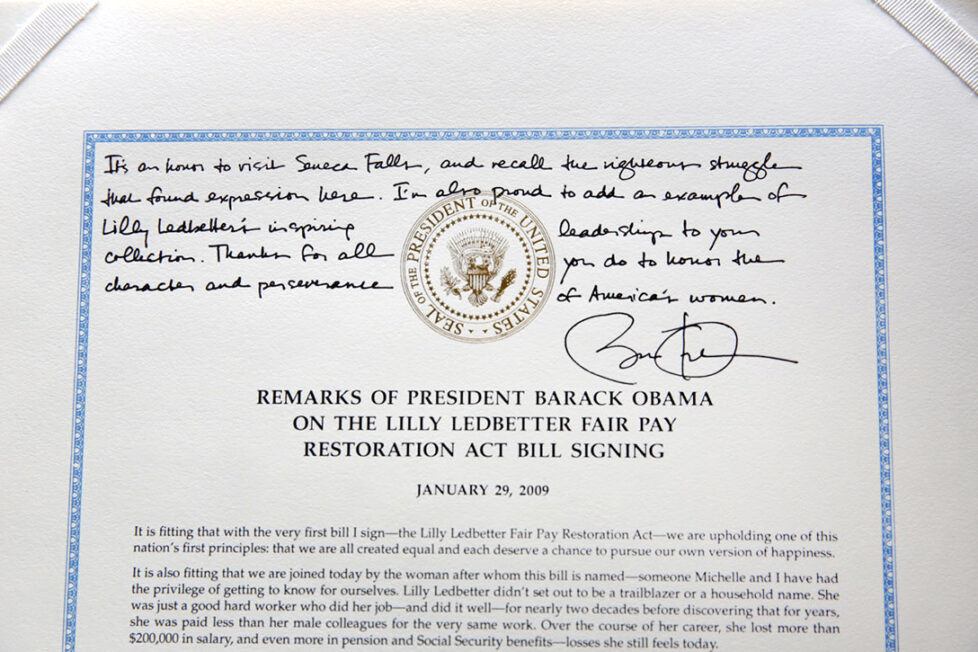Biden-Harris Administration take steps to address racial wage gap


By: Stacy M. Brown, NNPA
Taraji P. Henson’s powerful statement that highlighted the glaring wage disparities faced by Black women in Hollywood perhaps pales in comparison to the meager salaries those in America’s workforce historically contend with. And on January 29, the anniversary of the Lilly Ledbetter Fair Pay Act, the Biden-Harris Administration unveiled comprehensive measures to tackle persistent gender and racial wage gaps in the United States.
Henson recently emphasized the inequities, stating that “the math ain’t mathing” when it comes to the disproportionate pay differences for Black women in the entertainment industry. Her poignant observation underscored the broader issue of unequal pay in that industry. President Joe Biden and Vice President Kamala Harris reaffirmed their commitment to equal pay as a fundamental component of their mission to ensure fairness and opportunity for all workers by observing the law that Barack Obama signed in 2009.
The administration said it recognized that women are paid, on average, only 77 cents for every dollar paid to men. The wage gap is even more pronounced for women of color, where African Americans earn only 64 cents and Latina women earn a mere 55 cents for each dollar earned by their male counterparts.
Obama’s legislation, signed on January 29, 2009, responded to the Supreme Court’s decision in Ledbetter v. Goodyear Tire & Rubber Co., which stripped protections against pay discrimination.
“The Lilly Ledbetter Fair Pay Act reinstates prior law and emphasizes that pay discrimination claims based on sex, race, national origin, age, religion, and disability ‘accrue’ whenever an employee receives a discriminatory paycheck,” Biden remarked. “This is a crucial step in rectifying historical injustices and creating a fairer future for all.”
Building on the law’s foundation, the Office of Personnel Management (OPM) is finalizing a rule to eliminate the consideration of an individual’s current or past pay when determining federal employee salaries. Simultaneously, the Federal Acquisition Regulatory (FAR) Council proposes measures to prohibit federal contractors from seeking and considering applicants’ compensation history during the hiring process.
“The wage disparities faced by women, particularly women of color, are not just statistics; they represent real challenges that demand real solutions,” Harris emphasized. “Our actions today are a commitment to building a more equitable future.”
The Department of Labor’s (DOL’s) Office of Federal Contract Compliance Programs will also provide guidance to clarify existing protections against discrimination in hiring or pay decisions for federal contractors.
“Today’s announcements build on our commitment to closing wage gaps, creating a fairer economy, and ensuring that every American has the opportunity to thrive, regardless of their gender or race,” Biden declared.
